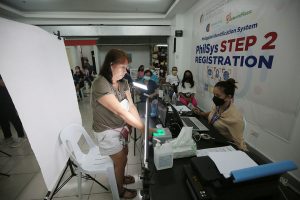THE Bangko Sentral ng Pilipinas (BSP) said it has terminated the printing contract for Philippine Identification System cards, or the National ID.
“This is a real problem… the contractor for these IDs has not been able to deliver, so we have terminated the contracts,” BSP Governor Eli M. Remolona, Jr. told a forum.
“We are negotiating for damages and at the same time we’re looking for a new vendor for this contract. But we’re working on that issue,” he added.
The central bank is responsible for printing the National ID, with the Philippine Statistics Authority (PSA) taking charge of gathering the data that goes into the cards.
The central bank is considered a recognized government printer, providing printing management requirements for various agencies, apart from its primary task of printing banknotes.
The BSP’s card printing supplier is AllCard, Inc.
In a statement on Thursday, the PSA backed the central bank’s decision to engage another supplier.
“The PSA trusts the assessment and decision of the BSP to terminate its contract with their supplier for the National ID card production,” it said.
“We affirm our unwavering commitment to delivering a reliable and secure National ID system, ensuring that every registered person will receive their National ID,” it added.
Legislators have raised concerns over the slow production and delivery of the National IDs.
In June, the PSA said that the backlog is currently 32 million physical cards. It cited the limited capacity of printing facilities.
A total of 51.6 million PhilIDs have been printed and distributed as of the end of May, according to the PSA. Meanwhile, 87.6 million citizens have registered for the National ID, with an eventual target of 100% registration.
The National ID is considered a means of achieving greater financial inclusion, with banks compelled to accept it as proof of identity in lieu of the old practice of requiring multiple proofs of identity.
The ID restrictions are thought to have prevented millions of Filipinos from opening bank accounts and joining the formal economy. — Luisa Maria Jacinta C. Jocson

